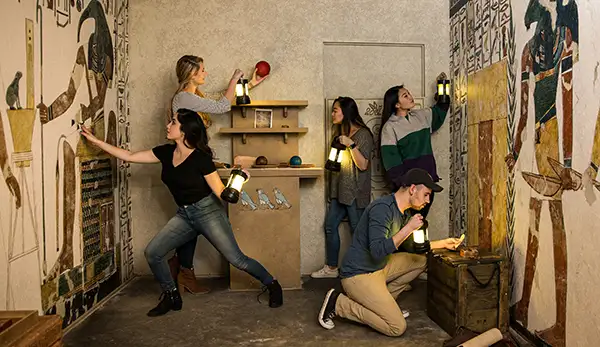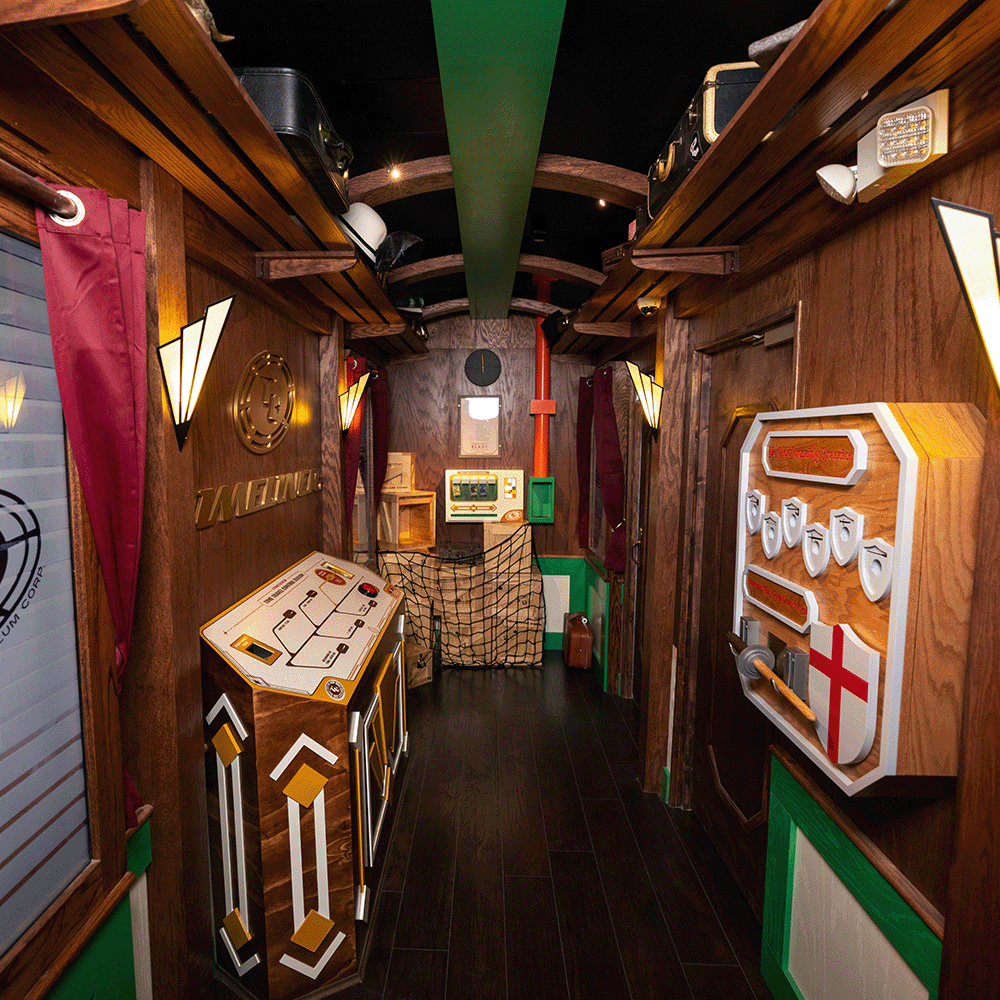Explore the Best Escape Room in Minneapolis-- Schedule Your Experience
Explore the Best Escape Room in Minneapolis-- Schedule Your Experience
Blog Article
Team Techniques: Exactly How to Collaborate Effectively in an Escape Space
Teams have to actively pay attention to each member's understandings, appoint roles that line up with specific strengths, and maintain normal check-ins to ensure focus and protect against redundancy. By cultivating a setting that values cohesion and adaptability, teams can considerably increase their effectiveness and success prices.
Establish Clear Communication

To assist in clear interaction, it is vital to designate a central point of call for information circulation. This duty entails summarizing searchings for and recommended techniques to make sure every person continues to be on the exact same page. Additionally, embracing a methodical strategy to discussions can avoid disorderly exchanges. Short, concentrated updates from each group member can maintain the team notified without frustrating them with details - best escape room.

Assign Functions Strategically
While clear interaction sets the structure for reliable teamwork, designating roles tactically makes sure that each staff member's staminas are made use of efficiently. In an escape room circumstance, the time-sensitive and intricate nature of obstacles requires an efficient method to job delegation. By determining and leveraging private proficiencies, teams can maximize their analytical abilities and boost overall efficiency.
Someone with a keen eye for information might succeed in discovering hidden items, while a sensible thinker might be better fit to addressing problems. This function commonly requires solid business and interpersonal skills.
Second, guarantee that functions are flexible and versatile. As brand-new challenges emerge, the group has to be able to pivot, reapportioning tasks as needed. This versatility aids keep energy and stops traffic jams that could occur because of rigid role assignments.
Inevitably, a strategic strategy to role job not just takes full advantage of the staminas of each employee but also promotes a cohesive setting, driving the group towards an effective escape.
Use Diverse Abilities
Identifying and utilizing the varied abilities within your group can significantly elevate your efficiency in a getaway space. Each employee brings distinct toughness to the table, and effectively leveraging these capabilities can speed up problem-solving and enhance overall effectiveness. For instance, an employee with strong analytical abilities could succeed at analyzing complicated codes or patterns, while another with keen observational capabilities may promptly identify hidden clues that might forget.
Motivate group participants to articulate their insights and concepts promptly, ensuring that all possible options are thought about. Furthermore, assigning jobs that line up with each member's linked here strengths can avoid traffic jams and make certain that progression is continuous.
Additionally, variety in abilities commonly translates to variety in believing styles, which is very useful in a getaway room setting. While some difficulties may need rational thinking and accuracy, others may gain from creative and association of ideas. By acknowledging and leveraging this variety, groups can deal with a broader variety of difficulties better, thereby raising their opportunities of a successful escape.
Manage Time Properly

Determine noticeable puzzles and separate jobs based on team members' toughness, making certain that nobody is still. This practice can aid keep the team concentrated and prevent time from slipping away undetected.
In addition, avoid passage vision. If a puzzle is taking too long, revolve employee or go on to another difficulty, returning later on with fresh point of views. Communication is extremely important-- maintain every person updated on fixed puzzles and staying jobs to prevent redundant efforts.
Last but not least, make use of any type of hints or ideas sparingly however strategically - best escape website here room. Knowing when to ask for help can conserve important time. By adhering to these time management concepts, teams can substantially enhance their chances of a successful and pleasurable retreat room experience
Debrief and Show
Representation is a necessary aspect of team development and enhancement in the context of escape areas. Once the obstacle is finished, whether successfully or otherwise, it is crucial for the team to participate in a structured debriefing session. This procedure allows employee to analyze their performance, Your Domain Name recognize strengths, and pinpoint locations for renovation.
Start the debrief by discussing what worked out. Highlight particular instances of efficient communication, analytical, and collaboration. Identifying these favorable habits reinforces them and motivates their rep in future difficulties.
Review minutes of confusion, miscommunication, or ineffective methods. Encourage an open and constructive dialogue where team members can share their perspectives without anxiety of criticism.
Conclusion
To conclude, successful cooperation in an escape area is predicated upon clear interaction, critical duty projects, the reliable usage of varied abilities, and proficient time monitoring. Normal check-ins and structured debriefings are essential for maintaining emphasis and cultivating constant improvement. By producing a cohesive and adaptive group setting, the probability of effectively fixing challenges and accomplishing the objective of escaping the room is significantly improved. This approach not only guarantees success yet likewise advertises cumulative growth and knowing.
Report this page